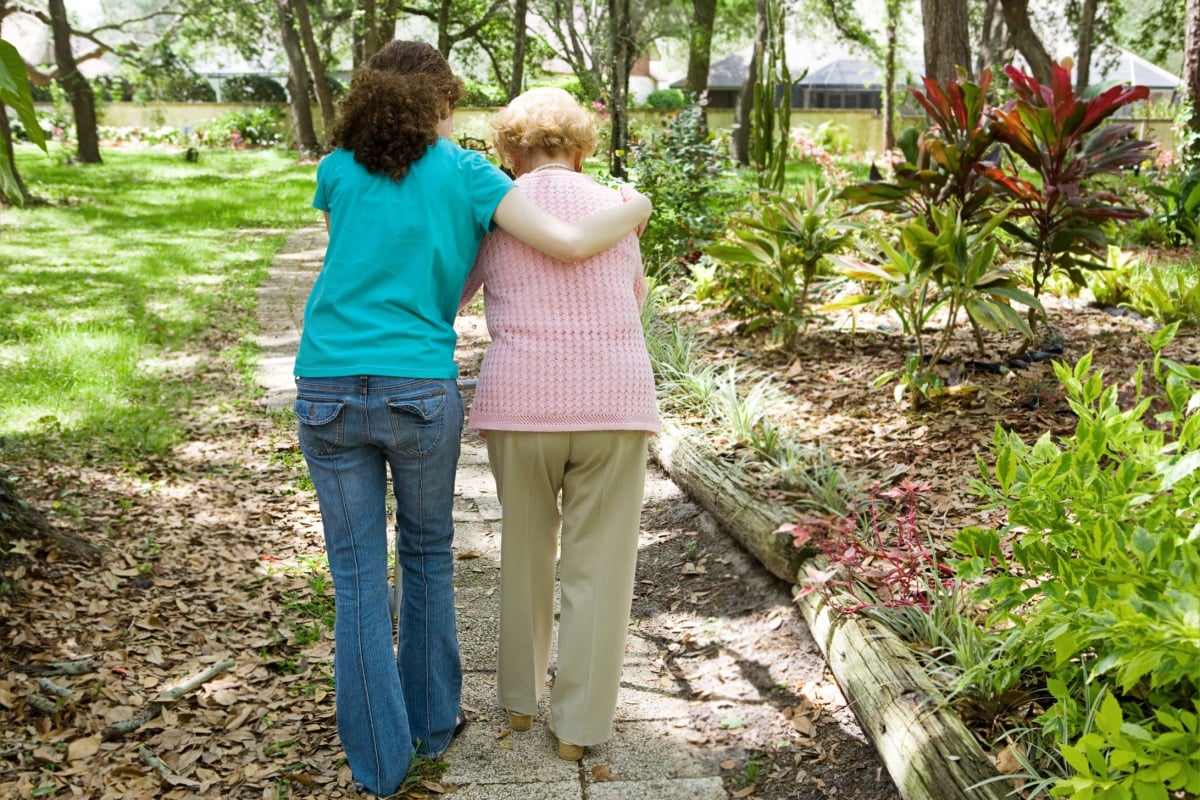Aging brings a heightened focus on health and well-being. Adopting healthy habits can profoundly affect both the length and quality of our lives. Below, our team at Brickmont Assisted Living explores crucial habits for healthy living and lengthened longevity, offering practical tips for older adults and their families to seamlessly integrate these into daily life.
Recent Posts
8 Habits for Healthy Living and Longevity
Topics: Helpful Tips, Health
Unraveling the Link Between Tinnitus and Dementia
Both tinnitus and dementia can significantly impact the quality of life of older adults. Understanding these conditions, their symptoms, and their potential connections is crucial for promoting better health outcomes. This is especially important for families and caregivers who play a pivotal role in supporting the well-being of their older loved ones.
Topics: Memory Care, Health
Finding Balance in Caregiving and Your Career
In countless households, the juggling act of being a devoted family caregiver while maintaining a career can be overwhelming. This article is crafted to assist those who find themselves in this unique and challenging role, offering both heart-warming empathy and strategic advice to nurture the needs of caregivers and their loved ones.
Helping Your Loved One Recognize Health Concerns
When your loved one begins refusing to recognize health concerns or consistently denies that they’re experiencing changes, confronting these wellness issues can be an emotional upheaval. Instinct urges you to protect and intervene, but approaching this subject with a loved one in denial often feels like a delicate challenge.
How to Best Support Those Living in Atlanta Memory Care
Caring for a loved one with memory impairment is a profound commitment, one that often reshapes every aspect of a family's daily life. The decision to transition a family member into a memory care community is never taken lightly, as it heralds a change in how we perceive and deliver care.
Wellness & Mental Health Benefits of Spring Cleaning
For many, the thought of spring cleaning may conjure images of daunting tasks, dusty corners, and overstuffed closets. However, for older adults, this seasonal tradition offers an array of surprising mental health benefits that are as refreshing as the season itself.
Ways to Celebrate Earth Day
Since 1970, April 22 has marked Earth Day, a holiday that reminds us of the precious nature of the planet we call home. As a day dedicated to environmental protection and sustainability, Earth Day holds global significance, promoting a healthy, more sustainable environment for all. This occasion serves as a powerful call to action, particularly resonant among older adults who possess a lifetime of experiences and have witnessed environmental changes over the decades.
5 Things Dementia Caregivers Should Do Every Day
Providing care for a person living with dementia is a journey filled with compassion, patience, and love. As a caregiver, your role is fundamental; it's a relationship that requires strength and understanding and varies greatly from one day to the next.
Brickmont Assisted Living provides comprehensive dementia care to families in the Atlanta area. We’re diving into essential tasks that should be in every dementia caregiver's care plan, aimed at improving the quality of life for the caregiver and the person with dementia.
Topics: Caregiving
What to Expect as You Age: What’s Normal vs. What’s Not
Aging is an inevitable part of life, bringing with it numerous changes. It's a journey filled with triumphs, trials, and transitions. As time ticks on, you may notice yourself moving a little slower, forgetting a bit more, and adapting to a new rhythm of life.
But what's the norm? Understanding the natural aging process and distinguishing between normal aging effects and symptoms of potential medical conditions can help you maintain a high quality of life and seek timely medical attention when needed.
How to Make a Loved One’s Memory Care Apartment Feel Like Home
Transitioning a loved one to a memory care community can be an emotional and challenging time. In this new environment, creating a comforting, familiar space that feels like home is essential. This personalization can help ease the transition, reduce anxiety, and foster a sense of belonging.











.png)